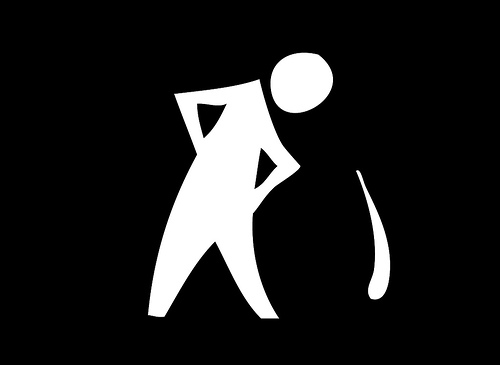| 正面 | 4981.spit 英 [spɪt]美 [spɪt]     |
|---|---|
| 背面 |      释义: 1. 专家把它吐出来了。vi. 吐痰;吐口水;发出劈啪声vt. 吐,吐出;发出;发射n. 唾液 例句: 1. The gang thought of hitting him too, but decided just to spit.那伙人也想过要揍他,但最后只是啐了他一口。 spit 吐,唾,怒斥来自拟声词根辅音丛 sp-,吐,喷出,比较 spate,spew,spit,spout,sputter.spit 烤肉扦来自古英语 spitu,烤肉扦,来自 Proto-Germanic*spituz,尖刺,来自 PIE*spei,尖刺,尖点,词 源同 spike,spire. spitspit: English has two words spit in current usage. Spit ‘eject saliva’ [OE] is one of a sizable group of English words beginning sp- which denote ‘ejecting or discharging liquid’. Others include spew [OE], spout [14], spurt [16], and sputter [16]. They all go back ultimately to an Indo- European base *spyēu-, *spyū-, etc, imitative of the sound of spitting, which also produced Latin spuere ‘spit’ (source of English cuspidor [18] and sputum [17]).The immediate source of spit itself was the prehistoric Germanic base *spit-, a variant of which, *spāt-, produced English spittle [15] (originally spattle, but changed through association with spit). Spit for roasting things on [OE] comes from a prehistoric Germanic *spituz, which also produced German spiess and Dutch spit.=> cuspidor, spew, spout, spurt, sputter, sputumspit (v.1)"expel saliva," Old English spittan (Anglian), spætan (West Saxon), transitive and intransitive, past tense *spytte, from Proto-Germanic *spitjan, from PIE *sp(y)eu-, of imitative origin (see spew (v.)). Not the usual Old English word for this; spætlan (see spittle) and spiwan are more common; all are from the same root. To spit as a gesture of contempt (especially at someone) is in Old English. Related: Spat; spitting.spit (n.1)"saliva," early 14c., from spit (v.1). Meaning "the very likeness" in modern use is attested from 1825 (as in spitting image, attested from 1887); compare French craché in same sense. Spit-curl (1831) was originally considered colloquial or vulgar. Military phrase spit and polish first recorded 1895.spit (n.2)"sharp-pointed rod for roasting meat," late Old English spitu "a spit," from Proto-Germanic *spituz (cognates: Middle Dutch and Dutch spit, Swedish spett (which perhaps is from Low German), Old High German spiz, German Spieß "roasting spit," German spitz "pointed"), from PIE *spei- "sharp point" (see spike (n.1)). This is also the source of the word meaning "sandy point" (1670s). Old French espois, Spanish espeto "spit" are Germanic loan-words. The verb meaning "to put on a spit" is recorded from c. 1200.spit (v.2)c. 1200, "put on a spit, thrust with a spit," from late Old English sputtian "to spit" (for cooking), from spit (n.2). Meaning "pierce with a weapon, transfix, impale" is from early 15c. Related: Spitted; spitting. Nares' Glossary has spit-frog "a small sword."" |